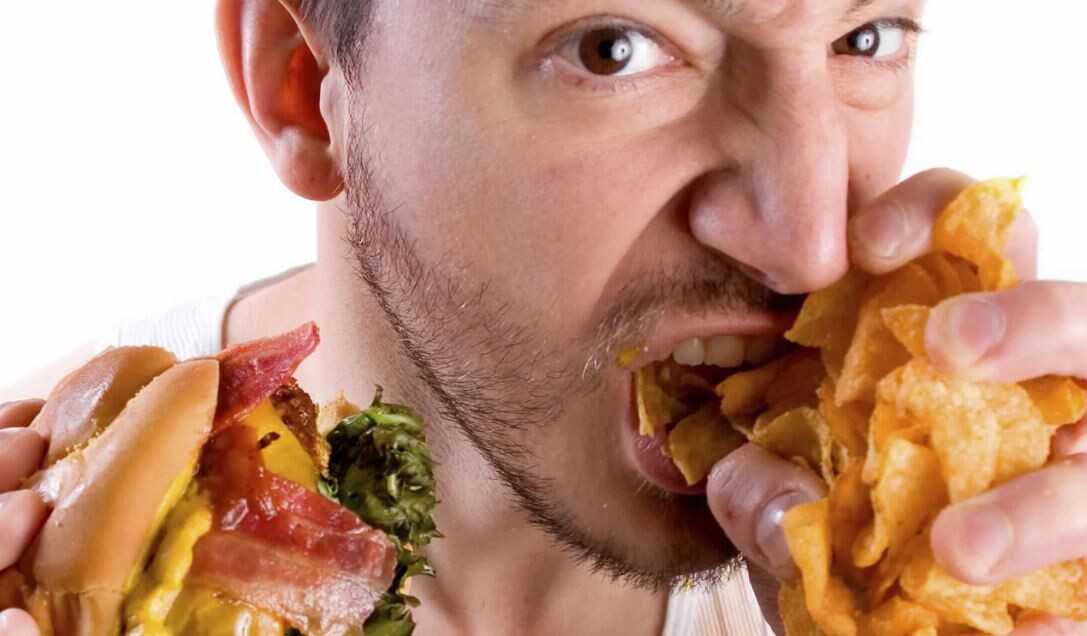
More Isn’t Always Better
In the bodybuilding and fitness community people have a both a practical and illogical relationship with food.
The higher standards to only consume natural, organic, and unprocessed foods is preached by every social influencer in the industry and this justifies why consumers should be eating large amounts of these foods.
‘If a little is good, more is even better’ is the motto when it comes to fitness enthusiasts and this can lead into trouble if you’re not too careful.
While it’s smart to eat heathier and cleaner sourced foods to help meet your fitness goals, it doesn’t make much sense to overindulge in anything to reach those goals even faster. This overindulgence of food, or bulking is what causes many individuals to have difficulty in removing fat from their physique over time (see Why Caloric Surplus is Best for Muscle Gains).
Although it’s much slower, a slight caloric surplus is all what’s needed to continuously make strength progress on your workouts and add muscle to your frame. This can be all done by just slightly increasing your meal serving sizes (How to Use the Portion Sizing Method).
Rather than concentrating on eating larger amounts of food for fast metabolism body types, I rather maximize hypertrophy optimization: building more effective workouts while trying to avoid burning excess calories throughout the day (see How to Make Your Workout More Effective).
By concentrating on hypertrophy optimization, you can design a much more chiseled physique without wasting years of time in the gym like everybody else.

Why You Should Stop Bulking
What’s the real difference between getting surplus calories and bulking? Isn’t bulking defined as getting a surplus of calories each day to eventually reach a desired weight?
The difference between the two is the accountability factor. When consuming a surplus of calories, one will have to measure or record how much of a surplus was consumed (see Why You Should Be Tracking Your Meals).
If the surplus to meet your needs is say only 300 calories per day, you would have to measure those excess 300 calories and record it down to observe your progress later in the week. On a bulk, recording the surplus isn’t necessary because you can consume an unlimited amount of calories past your maintenance.
Without recording, you’re liable to consume more than the necessary amounts needed to build muscle and you’ll start acquiring more fat.
This is why a diet that provides a surplus of calories instead of a bulk with massive amounts of food is overall more effective. You provide the body with right amount of energy it needs to maintain your lifestyle and your rate of protein synthesis is much more effective.
Protein synthesis can only be stimulated up to a certain limit after 1 meal and this is why it’s a bad idea to bulk with one meal a day (OMAD) diets. Converting protein from your meals into muscle is optimal with feeding at least 2 to 3 times per day.
You don’t need a big surplus to really grow as many of the surplus calories you consume will come from the foods you eat subconsciously through snacking between meals or liquid drinks during weight training.
Without the surplus of calories from your diet, you would need to calories for growth from excess fat. Only overweight individuals can utilize their calories in the form of stored fat to generate new muscles growth, also known as body recompositioning.
For high metabolism individuals looking to build muscle naturally you focus on getting your surplus calories. To start, consume more caloric dense foods with higher amounts of fat such as nuts, nut butter, avocados as a snack or with meals.
Try to prevent burning excess calories by keeping cardio sessions to a minimum and avoid working out multiple times per day. The more excess calories you burn, the harder it will be for you to maintain the necessary calories you need for growth.
The Wrap Up
Eating more food throughout the week doesn’t necessarily mean that your body will adapt and become bigger and stronger. Quite the opposite effect is usually the result and most individuals end up with a physique that doesn’t look or feel very good. Since you can’t speed up the rate your muscles grow naturally, it’s much better to optimize muscle growth through effective workouts and minimizing the amount of aerobic activity throughout the day.

Leave a Reply
You must be logged in to post a comment.